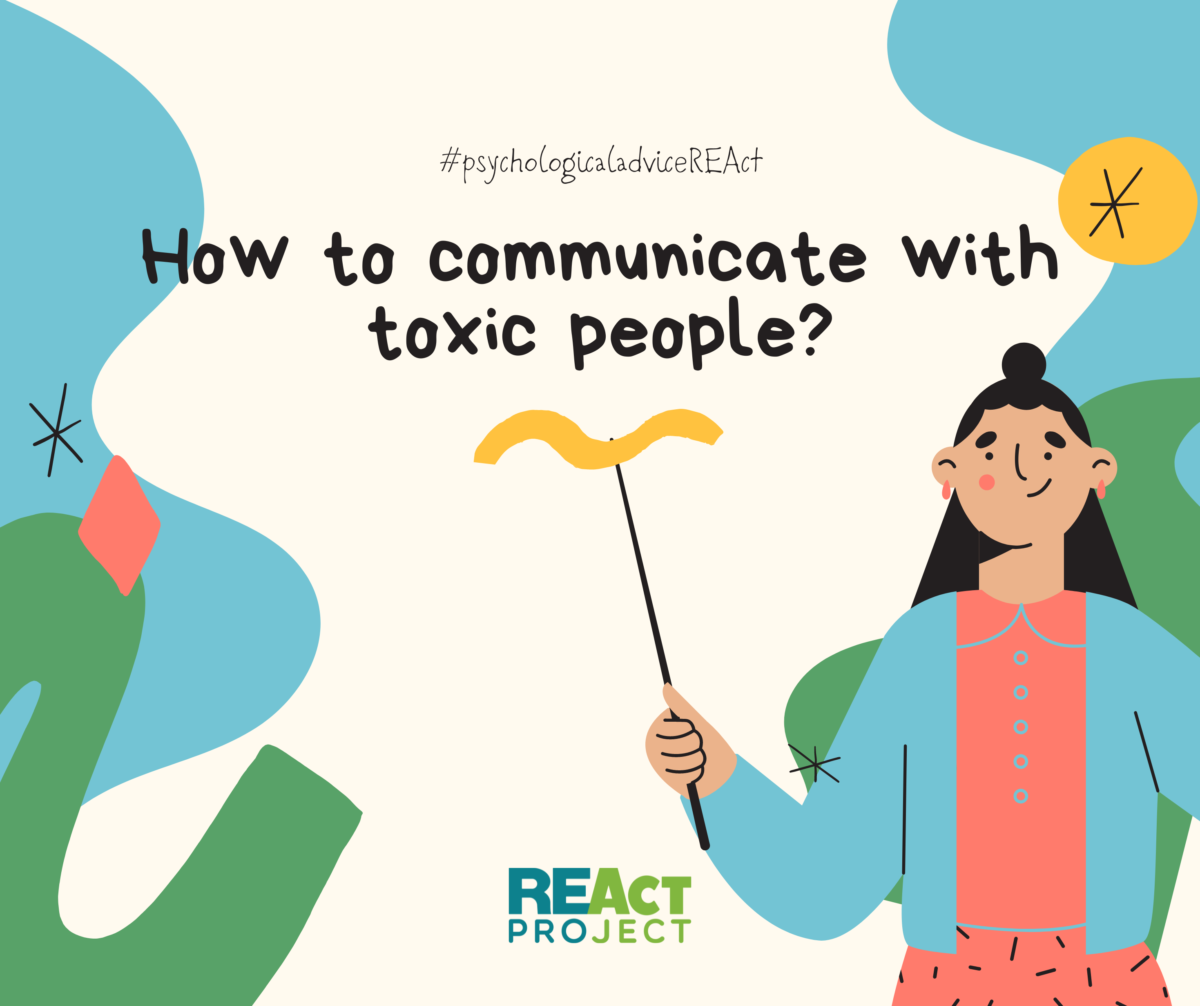During life, each of us encounters completely different people. Some of them arouse our sympathy, and some – do not. Constant communication with toxic people can:
- negatively affect your emotional state;
- destroy faith in yourself, your beliefs, goals;
- cause a feeling of desolation and inability to do anything;
- contribute to the emergence of conflicts between you and your environment.
In this case, the ideal option is to stop all interaction with this person completely. And this is true, but it is far from always possible to do so because your colleagues, boss, teammate, or relative can often be toxic.
The following recommendations can make your life easier if, for one reason or another, you are unable to avoid toxic communication:
- Do not expect changes from such a person.
It is much easier to build a dialogue when you clearly understand that the toxic interlocutor is unlikely to ever behave differently.
- Draw clear boundaries, because a toxic person’s favorite pastime is to press with their emotions and violate the personal space of others. Discard politeness and mark the limits of what is acceptable.
- Take control of the conversation.
Toxic people are skilled manipulators, so understanding this, follow the direction of the conversation so as not to fall into a “trap”. It is not as difficult as it seems. For example, you can cleverly change the topic of conversation to cool down the interlocutor.
- Do not give clear answers to uncomfortable questions.
- Be discreet.
Toxic people love to trap others in a “funnel of negative emotions.” If you fall into it, you will become a victim of provocations and you will respond with negativity for negativity. And therefore – you will lose your balance.
- Be straightforward.
A clear formulation of one’s position very often scares toxic people. Openly say that you are not satisfied.
- Filter information about yourself.
Toxic people are often “excessively open”. This is one of the ways to gain trust. And it’s perfectly normal to want to be frank in return.
Remember that the personal information you provide can later be used against you.
- Reduce the duration of communication if you cannot completely give it up.
- Try to empathize with toxic people, because they were not born that way, but they did not learn to meet their needs ecologically for one reason or another.
By understanding this, you will first of all help yourself not to become a victim of provocations and to distance yourself from such a person with a feeling of compassion, not anger, hatred, or irritation.


